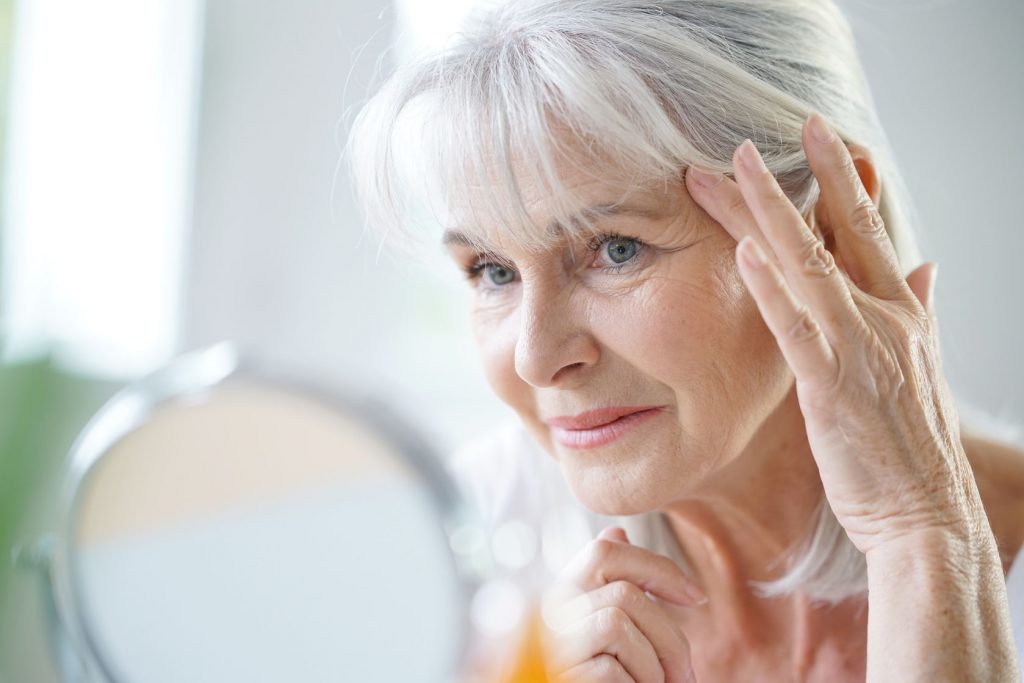Before we choose the face cream, we should consider two basic criteria: skin type and age. 20+ face creams contain substances that are designed to delay skin ageing processes. What ingredients should be contained in an anti-age cream?
What ingredients should be contained in an anti-age cream?
The anti-age cream contains substances that aim to take care of mature skin. Cosmetics with anti-ageing properties are multidirectional: they protect, regenerate, moisturize and nourish the complexion. Meet some of the most desired components today.
Phytohormones
are plant hormones – substances that because of their action, resemble human hormones. They are obtained from various plants, for example from sunflower seeds, wild rice or soy. Phytohormones prevent skin damage, act anti-free radical, soothe inflammation, improve blood circulation and nourish the skin, increase its elasticity and reduce wrinkles.
Hyaluronic acid
is one of the most effective moisturizing ingredients. Effective action of hyaluronic acid is caused by its occurrence in every living organism, which makes it not an unknown substance for tissues. Hyaluronic acid forms a protective film on the skin surface, thanks to which it retains water in the epidermis.
Mineral elements: calcium and magnesium
Calcium thickens the epidermis, regenerates cells and prevents excessive drying of the skin. Magnesium stimulates cell growth, activates cellular enzymes and participates in the processes of carbohydrate metabolism.
Vitamin A
most often occurs in the form of retinol, which accelerates the regeneration of the epidermis and dermal cells, and renews collagen fibres. In addition, retinol brightens discolourations, evens out skin tone and stimulates the formation of new blood vessels that supply nutrients to the cells.
Vitamin B9 (folic acid)
accelerates skin regeneration processes and supports cell renewal. It smoothes out small wrinkles and reduces the harmful effects of sun radiation, thus delays photoaging of the skin.
Vitamin C
is a very strong anti-free radical substance, which additionally stimulates the formation of collagen. It brightens discolourations and improves circulation in the capillaries, so it evens out the tone and gives the skin a healthy, fresh shade.
Vitamin E
is a very powerful antioxidant that delays the ageing process of the skin, moisturizes, regenerates and nourishes.


Leave a Reply